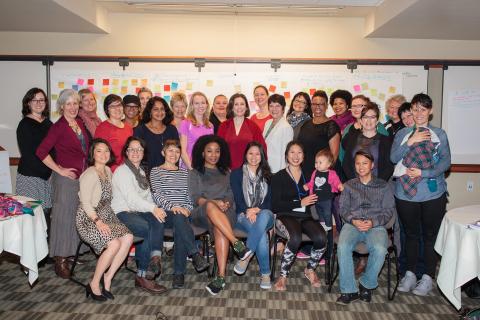
I started helping mission-driven entrepreneurs raise capital almost ten years ago. My clients have collectively raised almost $20 million, with amounts ranging from $150,000 to $4 million.
About two years ago, I was compiling a list of the clients that I had helped to raise money. At that time, I could honestly say that every client that I had worked through the whole process with (i.e. if I excluded those that changed their minds and didn’t complete the process) had met their fundraising goals. Some took longer than others, but all of them had eventually reached their goals.
Looking at the list, I noticed something strange: almost all of my clients were companies led by men.
I decided I wanted to start focusing on helping women entrepreneurs raise capital. So that is what I have been doing for the last two years. And here is the dirty little secret that I don’t like to talk about: I am not seeing the same success rate that I saw with my male clients.
Yes, some of my female clients are raising money, but I am seeing them take longer and struggle more than my male clients.
What is going on? I have done some research, as well as paid attention to what women entrepreneurs say about raising money. I’ve also reflected on my own experience raising money from investors three times in the last five years. Here are a few data points that are consistent with my observations:
- Men in the United States are about 25% more confident than women in their capability to start a business.[1]
- Men apply for a job when they meet only 60% of the qualifications, but women apply only if they meet 100% of them.[2]
- Women are 70% more likely to say “I didn’t want to put myself out there if I was likely to fail.”[3]
- Investors prefer pitches presented by male entrepreneurs compared with pitches made by female entrepreneurs, even when the content of the pitch is the same.[4]
Based on my own experience and talking to hundreds of women entrepreneurs, I think all of these phenomena contribute to the problem. Women entrepreneurs have less confidence about asking for money, feel they have to have a perfect business before they can ask, and would rather not ask if they think they will get a no. To make matters worse, when they do ask, the deck is stacked against them because of gender bias.
Another problem is that the fundraising strategy that gets the most hype is the Silicon Valley model which requires super-fast growth at all costs, which just doesn’t fit what many women entrepreneurs want for their businesses and their lives. They often don’t know that there are many ways to raise capital.
I am really tired of seeing women having to work harder to raise money!
So I am partnering with Amrita Sankar of ImpactAssets to do more in-depth research about what factors contribute to the funding gap that women face and what kinds of interventions are the most effective for helping women achieve their fundraising goals in a way that allows them to stay in alignment with their values.
Please stay tuned over the next few months to hear more about our findings.
Democracy Collaborative Fellow Jenny Kassan has over two decades of experience as an entrepreneur and attorney. Jenny is the President of Community Ventures, a nonprofit organization dedicated to promoting the economic and social development of communities. She also co-founded the Sustainable Economies Law Center, a nonprofit that provides legal information to support sustainable economies. Throughout 2017, Jenny will be contributing a series of posts based on themes found in her forthcoming book on ways in which businesses in the New Economy can raise capital while not concentrating wealth in fewer and fewer hands and requiring fast growth at any cost.
[1] Global Entrepreneurship Monitor 2015 U.S. Report, Babson College
[3] “Why Women Don’t Apply for Jobs Unless They’re 100% Qualified” by Tara Mohr, Harvard Business Review, Aug. 25, 2014
[4] “Investors prefer entrepreneurial ventures pitched by attractive men” by Brooks et al., PNAS, March 25, 2014; available at http://www.pnas.org/content/111/12/4427.full.pdf